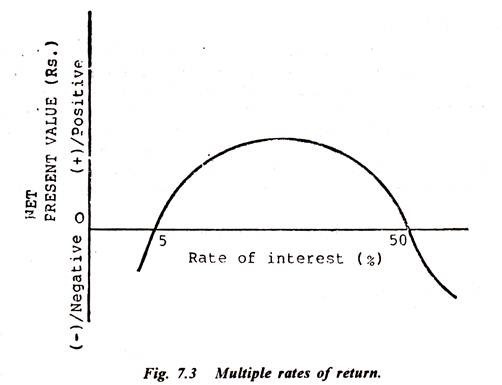In this article we will discuss about the accounting provisions relating to forfeiture of shares, explained with the help of suitable illustrations.
When a shareholder fails to pay any call money which is due from him, the Company has two options:
(i) To file a suit against the defaulting shareholder, or
(ii) To forfeit his shares.
ADVERTISEMENTS:
Generally, a Company adopts the second remedy. The Articles of Association of almost every Company reserve the right of forfeiture of the shares for non-payment of call money within a stated period.
The following conditions must be satisfied for the valid forfeiture of shares:
1. The power to forfeit shares must be expressly given in Articles of Association of the Company.
ADVERTISEMENTS:
2. A notice must be sent to shareholder, giving him at least 14 days time to pay the amount due. It must also state that in case of failure, the shares will be forfeited.
3. If the Company does not receive the amount even after notice, the Board of Directors, by passing a Resolution, forfeit the shares.
Forfeiture means taking away the right as a penalty for making default. Thus, if a shareholder fails to pay any call money, his shares may be cancelled.
Effect of Forfeiture:
ADVERTISEMENTS:
1. A person whose shares have been forfeited ceases to be a member in respect of the forfeited shares.
2. The name of such defaulted person will be struck off from the Register of Members.
3. A person loses whatever amount he had paid to the Company. The Company does not refund such amount to defaulting shareholders.
Forfeiture means cancellation of the shares and to that extent, the share capital stands reduced. Therefore, Share Capital Account should be debited at the rate at which it was credited. Therefore, after the forfeiture of shares, the calls-in-arrears are not recoverable. The amount already received on such shares is forfeited.
ADVERTISEMENTS:
Entries in Connection with Forfeiture:
Note:
(1) If the premium amount has already been received on the shares, it should remain intact; no entry is to be passed, on forfeiture, in respect of securities premium.
ADVERTISEMENTS:
(2) However, in some cases, when a call is made, Securities Premium Account is credited and when the call is not received in cash, then it is necessary to debit the Securities Premium Account. Again, Securities Premium Account will be debited only if the amount of premium remained unpaid.
(3) On forfeiture of shares which were issued at a discount and if the Discount on Shares Account had already been debited, such discount should be cancelled by crediting the Discount on Share Account.
ADVERTISEMENTS:
Illustration 1 (Forfeiture of Shares Issued at Par):
A company forfeits 100 shares of Rs. 10 each, fully called up on which a shareholder has failed to pay the First Call Money of Rs. 3 per share and the Second and Final Call Money of Rs. 3 per share.
Pass the journal entry.
ADVERTISEMENTS:
Solution:
Alternatively:
Illustration 2 (Forfeiture of Shares Issued at Premium):
A Company forfeits 100 shares of Rs. 10 each issued at Rs. 11 per share. The premium was payable on allotment. The shareholder failed to pay the allotment money of Rs. 3 per share and second and final call of Rs. 5 per share.
Pass the Journal entry
ADVERTISEMENTS:
Solution:
Illustration 3 (Forfeiture of Shares Issued at Discount):
A Company forfeits 100 shares of Rs. 10 each issued at Rs. 9 per share on account of non-payment of Rs. 4 per share by the shareholder.
Pass the journal entry.
Solution:
Illustration 4 (Forfeiture of Shares Originally Issued at Discount):
X Ltd. issued 20,000 Equity shares of Rs. 10 each at a discount of 10%. The amount payable as: Rs. 2 on application, Rs. 3 on allotment, Rs. 5 on final call. Mr. Seth, the holder of 1,000 shares did not pay the amount due on call and his shares were forfeited by the Company.
Journalise the entries for forfeiture.
Solution:
Illustration 5 (Forfeiture of Shares Issued at Premium):
A Ltd. had its issued capital comprising 20,000 equity shares of Rs. 10 each payable as: Rs. 2 on application, Rs. 3 on allotment (including premium), Rs. 3 on 1st call and Rs. 3 on final call.
The shares were called up to the 1st call stage. All the share money received except from Arun, holding 300 shares, who paid only application and except from Balram, holding 100 shares, who paid upto allotment. All these shares were forfeited.
Journalise the entries for forfeiture.
Solution:
Surrender of Shares:
Sometimes a shareholder voluntarily gives up his shares to the Company, if he feels that he cannot pay the calls due on shares to the Company. When a shareholder gives up his shares to the Company voluntarily and sacrifices all his rights, it is known as Surrender of Shares.
There is no provision in Table A of the Companies Act regarding surrender of shares and a company cannot possibly accept the surrender of fully paid up shares as it amounts to purchase of its own shares which is prohibited under Section 77. Sometimes, Articles of Association empowers the Directors to accept Surrender of Shares.
Ultimate effect of Surrender of shares and Forfeiture of Shares is the same because in both cases membership of the shareholder comes to an end. The main point of difference between the two is that surrender is at the initiative of the shareholders while forfeiture is at the initiative of the Company. Accounting record for surrender of shares is the same as that of forfeiture.






